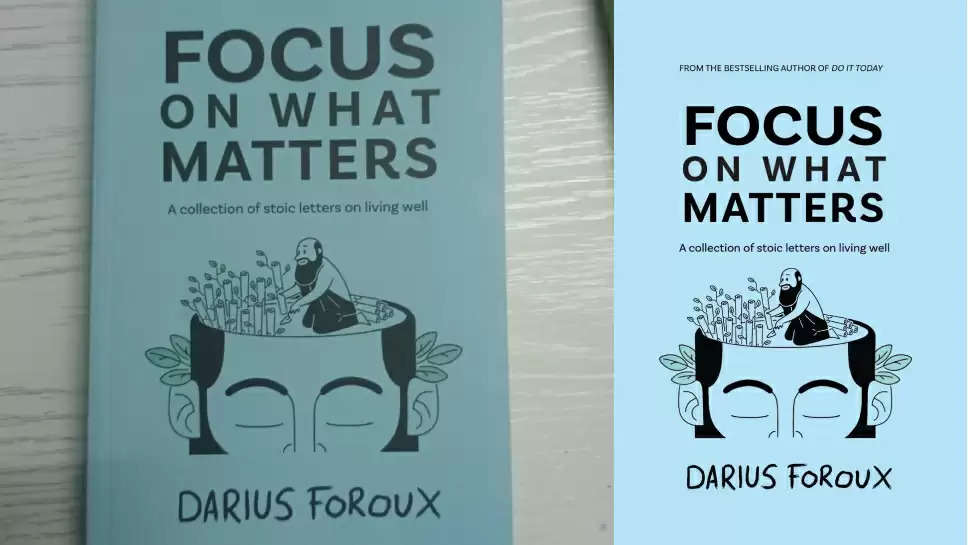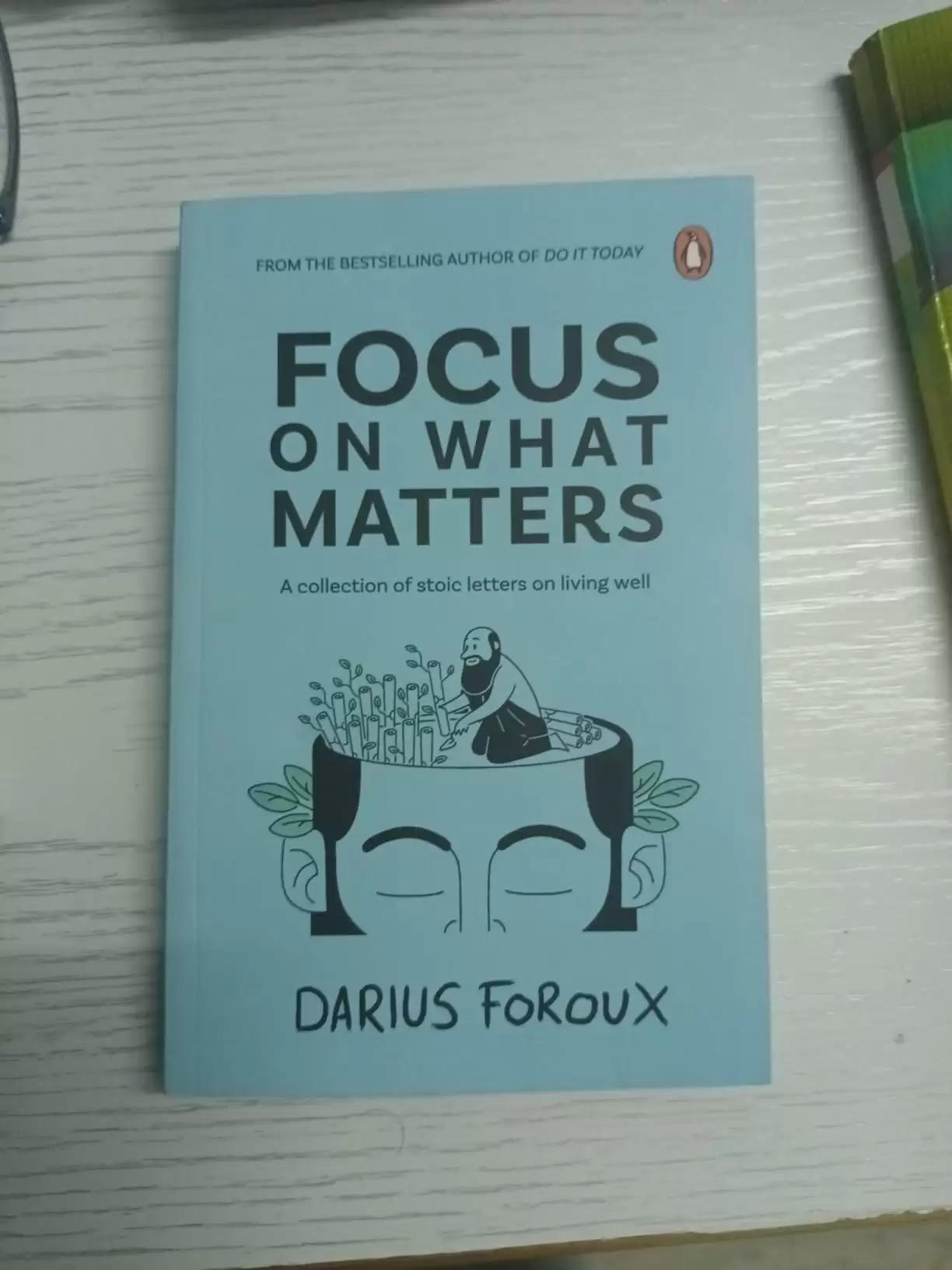7 Lessons from Darius Foroux's "Focus on What Matters": A Stoic Guide to Living Well

Darius Foroux’s book "Focus on What Matters: A Collection of Stoic Letters on Living Well" draws on the wisdom of Stoic philosophy to provide readers with actionable insights that foster a more meaningful and intentional life. Through a careful examination of the key principles of Stoicism, Foroux distills vital lessons that resonate with our contemporary challenges. Here, we explore seven pivotal lessons from the book, illustrating how they can guide us in prioritizing what truly matters in our lives.
1. Prioritize Ruthlessly
At the heart of Foroux's teachings is the idea of ruthless prioritization, inspired by the letters of Seneca. In a world inundated with distractions and demands, identifying your core values becomes essential. Foroux urges readers to critically assess their commitments and eliminate activities that do not align with their values. This requires a disciplined approach, where time and energy are reserved for pursuits that genuinely matter. By prioritizing effectively, we can reclaim our focus and direct our efforts toward what enriches our lives, rather than succumbing to the endless busyness that often leads to burnout.
2. Memento Mori - Remember You Must Die
One of the most powerful Stoic practices is memento mori, the reminder of our mortality. Foroux incorporates this concept to emphasize the importance of living with an acute awareness of our limited time. By acknowledging our inevitable demise, we are prompted to reflect on what truly holds significance. This awareness acts as a filter, allowing us to let go of trivial pursuits and concentrate on what brings us fulfillment. Embracing memento mori fosters a sense of urgency to make the most of each day, encouraging us to live intentionally and with purpose.
3. The Dichotomy of Control
Foroux also emphasizes the Dichotomy of Control, a fundamental Stoic principle that delineates between what we can control and what we cannot. We often waste energy worrying about external events or other people's actions, which are beyond our influence. Instead, Foroux advocates focusing on our thoughts, actions, and reactions—elements we can actively manage. By channeling our energy toward the controllable aspects of our lives, we cultivate resilience and reduce unnecessary stress. This shift in focus empowers us to take charge of our circumstances, leading to a more peaceful and productive existence.
4. Choose Your Perception
Another significant lesson from the book is the importance of perception. Foroux argues that happiness does not depend on external circumstances, but rather on how we choose to perceive those circumstances. By taking responsibility for our emotional responses, we can reframe challenges and adopt a more positive outlook. This perspective empowers us to see obstacles as opportunities for growth rather than setbacks. In practicing this mindset, we cultivate a sense of agency over our happiness, transforming the way we approach life’s difficulties.
5. The Power of Action
Reflection is undeniably valuable, but Foroux stresses that it must be complemented by action. The book warns against analysis paralysis, urging readers to take tangible steps toward their goals. Action, no matter how small, creates momentum and leads to progress. Foroux encourages readers to celebrate their achievements along the way, reinforcing the idea that consistent, purposeful action is key to living a fulfilling life. This proactive approach is essential in overcoming inertia and making meaningful strides toward our aspirations.
6. The Importance of Habits
Foroux delves into the transformative power of habits, highlighting how they shape our daily lives and ultimately our destinies. By cultivating positive habits aligned with our core values, we can create a life that feels more intentional and fulfilling. Habits function on autopilot, allowing us to make progress even when motivation wanes. The book encourages readers to identify and nurture habits that support their goals, recognizing that small, consistent actions can lead to significant change over time.
7. Cultivate Gratitude
Finally, Foroux emphasizes the importance of gratitude. Practicing gratitude for even the smallest blessings fosters a sense of contentment and enhances our overall well-being. By regularly reflecting on what we appreciate, we shift our focus from what we lack to what we have, creating a more positive mindset. This shift not only improves our mental health but also enhances our relationships and quality of life.
In conclusion, "Focus on What Matters" serves as a powerful reminder of the Stoic principles that can guide us toward a more intentional and meaningful life. By prioritizing ruthlessly, embracing our mortality, distinguishing between what we can and cannot control, reframing our perceptions, taking action, cultivating positive habits, and practicing gratitude, we can navigate life’s complexities with clarity and purpose. Foroux’s insights encourage us to live in alignment with our values, ultimately leading to a life of greater fulfillment and virtue.

Book: https://amzn.to/3Zpb5jB
--
-- Thanks For Reading --
You Might Also Like: 3 Webseries with Bloody Brilliant Plots
